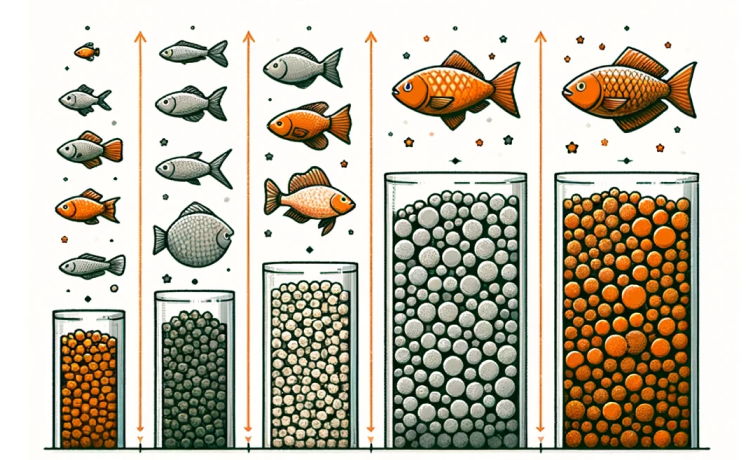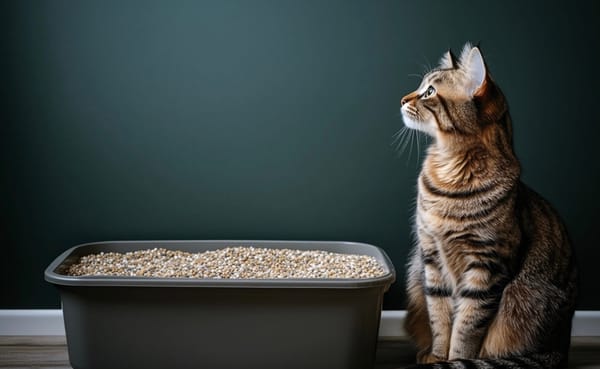The Ideal Diet for Aquarium Fish: A Comprehensive Guide to Keeping Your Pets Healthy and Happy

Feeding your aquarium fish is an essential part of caring for them. Proper nutrition is vital for their growth, reproduction, and overall health. Unfortunately, choosing the right type and amount of food can be overwhelming for beginners. That's why we've put together this comprehensive guide to help you navigate the world of aquarium fish diets.
Types of Fish Food
There are several types of fish food available on the market, including commercial pellets, frozen foods, and live foods. Each type has its advantages and disadvantages, so it's important to choose the right one for your fish.
- Commercial Pellets: Commercial pellets are the most popular choice for aquarium fish owners. They are convenient, easy to store, and readily available at most pet stores. They are also fortified with vitamins and minerals to meet the nutritional needs of most fish species. However, commercial pellets can be high in calories and low in protein, leading to obesity and other health problems if fed too much.
- Frozen Foods: Frozen foods are another option for aquarium fish owners. They are made from fresh, wild-caught fish and are packed with nutrients and flavor. They are also low in calories and high in protein, making them ideal for maintaining a healthy weight. However, frozen foods can be expensive and difficult to find in certain areas.
- Live Foods: Live foods, such as worms, insects, and small fish, are a great source of protein and other essential nutrients for aquarium fish. They are also a natural food source that mimics the diet of their wild ancestors. However, live foods can be challenging to obtain and maintain, requiring specialized knowledge and equipment.
Choosing the Right Type of Fish Food
When selecting the right type of fish food for your aquarium, consider the following factors:
- Fish Species: Different fish species have different nutritional requirements. Make sure to select a food that is suitable for your particular fish species.
- Size and Age: Younger and smaller fish require a higher protein diet than older and larger fish. Choose a food that is appropriate for your fish's age and size.
- Activity Level: Highly active fish, such as bettas and guppies, require a higher protein diet than less active fish, such as goldfish and turtles.
- Health Conditions: Fish with special health conditions, such as allergies or digestive disorders, may require a specialized diet. Consult with a vet or experienced aquarist to determine the best type of food for your fish.
Amount of Food
In addition to selecting the right type of fish food, it's important to feed your fish the correct amount. Overfeeding can lead to obesity, which can cause a range of health problems, including poor water quality and decreased lifespan. On the other hand, underfeeding can lead to malnutrition and stunted growth.
As a general rule, feed your fish once or twice a day, depending on their activity level and size. Aim to provide enough food to satisfy their hunger without overfilling the bowl. You can also fast your fish occasionally to allow their digestive system to rest and improve water quality.
Supplements and Additives
In addition to a balanced diet, supplements and additives can also play a role in maintaining the health of your aquarium fish. Here are some examples:
- Vitamin and Mineral Supplements: Vitamin and mineral supplements can help to fill any gaps in your fish's diet and support their immune system. Look for supplements that are specifically formulated for aquarium fish and follow the dosage recommendations carefully.
- Algae Eaters: Algae eaters, such as snails and shrimp, can help to control algae growth in your aquarium, improving water clarity and reducing the need for chemical treatments. However, be careful not to overfeed algae eaters, as they can become overpopulated and outcompete other fish for food.
- Dechlorinator: Chlorine and chloramines found in municipal water supplies can be toxic to aquarium fish. Using a dechlorinator can help to neutralize these chemicals and ensure safe drinking water for your fish. Follow the manufacturer's instructions carefully and test the water regularly to ensure that it is free of harmful chemicals.
Water Quality Maintenance
Maintaining good water quality is crucial for the health and well-being of your aquarium fish. Here are some tips to help you keep your tank clean and healthy:
- Cleaning Filters and Equipment: Clean your filter and other equipment regularly to remove debris and buildup. Use a gravel vacuum to siphon off excess sand and gravel from the substrate, which can harbor bacteria and parasites.
- Performing Water Changes: Perform partial water changes every week or two, removing 20% to 30% of the total volume of water. Replace the removed water with treated tap water or dechlorinated bottled water.
- Testing Water Parameters: Test the pH, ammonia, nitrite, and nitrate levels in your tank regularly using an aquarium test kit. Maintain a stable pH level between 6.8 and 7.4 and keep ammonia and nitrite levels below 20 parts per million (ppm).
- Monitoring Fish Behavior: Watch your fish for signs of stress or illness, such as unusual swimming patterns, loss of appetite, or cloudy eyes. If you notice any concerning symptoms, consult with a vet or experienced aquarist to determine the cause and develop a treatment plan.
Conclusion
Providing a balanced and nutritious diet is just one aspect of caring for your aquarium fish. Good water quality, regular maintenance, and monitoring of your fish's behavior are also essential components of a successful and enjoyable aquarium experience. By following the guidelines outlined in this comprehensive guide, you can help your fish thrive and enjoy a lifetime of beautiful, vibrant colors and graceful movements. So grab your bucket and net and start exploring the wonderful world of aquarium fish care today!
#aquariumdiet #fishnutrition #healthyeating #aquapetcare #petfoodguide




